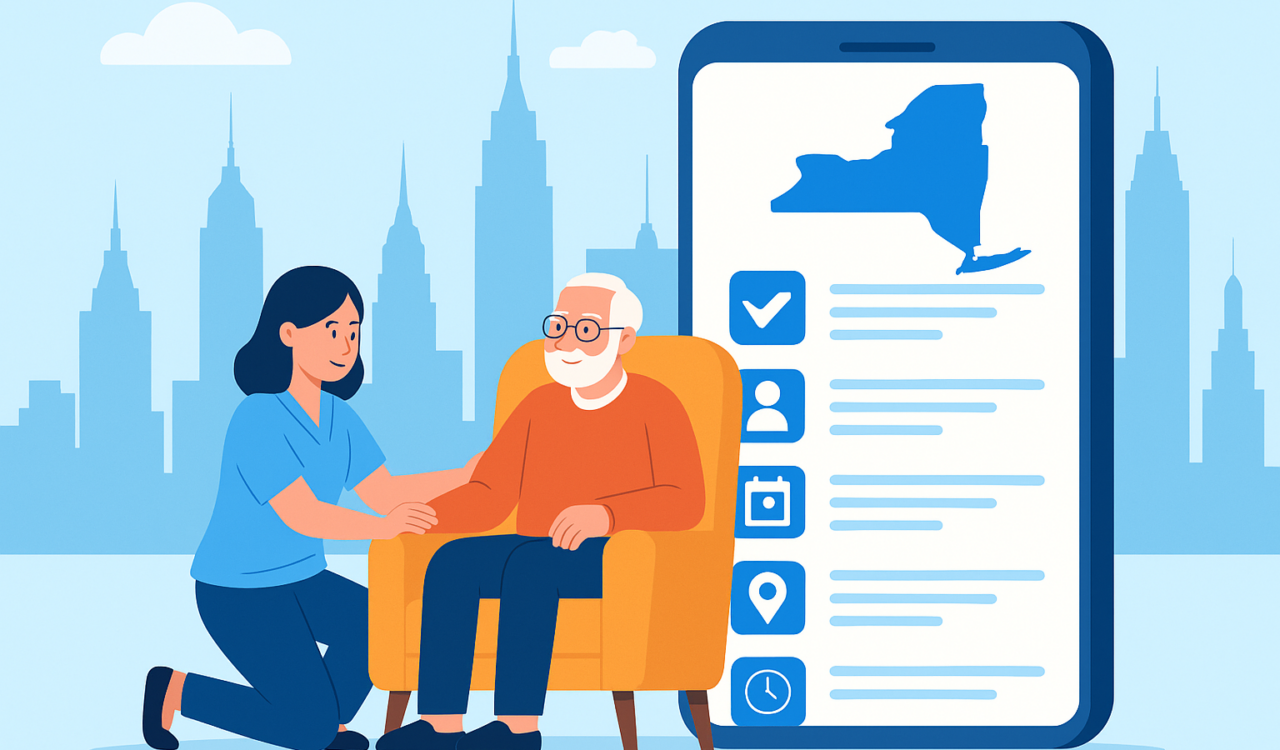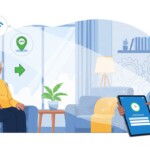If you operate a home healthcare agency, hospice service, or personal care program in New York, Electronic Visit Verification (EVV) is not just a buzzword—it’s a regulatory necessity. Mandated under the 21st Century Cures Act, EVV improves transparency, accountability, and care quality across Medicaid-funded in-home services.
New York follows an open model (provider choice) for EVV, which aligns with CMS’s guidance that encourages flexibility and innovation while ensuring federal compliance.

What Is EVV and How Does It Work?
Electronic Visit Verification (EVV) confirms key details of home-based visits, ensuring Medicaid beneficiaries receive authorized care services.
Every EVV system must collect the following six non-negotiable data points, as defined by the Centers for Medicare & Medicaid Services (CMS):
- Type of service performed
- Individual receiving the service
- Date of service
- Location of service delivery
- Individual providing the service
- Time the service begins and ends
New York adheres to these six requirements without adding any state-specific fields, reducing implementation complexity for agencies.
Who Must Comply in New York?
The following Medicaid-funded, in-home services must use EVV in New York:
- Personal Care Services (PCS) from Licensed Home Health Agencies
- Consumer Directed Personal Assistance Services (CDPAS)
- Home Health Care Services (HHCS) from Certified Home Health Agencies
No further extensions were granted by CMS. Full compliance is now required for continued reimbursement.

Understanding New York’s EVV Model: Provider Choice + State Aggregator
New York follows an open EVV model—also called a provider choice model—where:
- Agencies select their own EVV solution.
- The system must integrate with the state-approved data aggregator (e.g., eMedNY).
- There is no free, state-mandated vendor—providers are responsible for solution costs.
This approach aligns with CMS’s emphasis on minimal burden, giving agencies flexibility to choose tools that best fit their operations and workforce.
Compliance and Penalties: Why Timely EVV Adoption Matters
Failure to meet New York’s EVV requirements can result in:
- ❌ Payment delays or claim denials
- 📋 Increased audits and oversight
- ⚠️ Potential disqualification from Medicaid reimbursement
- 💸 Federal funding reduction for the state (up to 1%), which may influence future reimbursement policies
To avoid these outcomes, agencies must have reached 90% compliance by January 1, 2025, per NYSDOH expectations.
Why EVV Benefits Go Beyond Compliance
✅ Fraud Prevention
Verifies that services were delivered as scheduled—preventing falsified visits or inaccurate billing.
✅ Payroll & Billing Accuracy
Automates recordkeeping for clock-ins/outs and service notes—essential for payroll and Medicaid claim submissions.
✅ Improved Patient Outcomes
Ensures continuity of care by validating timely, consistent service delivery.
✅ Operational Efficiency
Eliminates paperwork, automates scheduling, and provides real-time insights via dashboards and alerts.

EVV Implementation Tips for 2025
- Assess Technology Needs
Evaluate caregiver tech-readiness and patient environment (smartphone access, landlines, etc.) - Select a Compatible EVV Vendor
Ensure it helps automate the entire workflow along with EVV compliance - Prioritise Data Privacy
Vendor compliance with HIPAA becomes extremely crucial since the workflow would involve dealing with critical patient data. - Monitor, Audit & Optimize
Use EVV data to improve scheduling, care delivery, and billing accuracy
Ready to Comply—And Thrive?
Choosing the right EVV solution isn’t just about ticking a compliance box—it’s about boosting operational excellence and caregiver satisfaction.
allGeo offers an all-in-one EVV solution designed for New York home healthcare providers, with:
- ✅ GPS-enabled time tracking
- ✅ Custom workflows & BI dashboard
- ✅ Smart forms and multimode clock in/out
🎯 Start your free trial today or schedule a demo to future-proof your agency.



